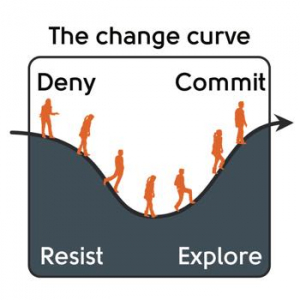Managing your wellbeing during a divorce
Every day should be a good day to talk about your emotions, but, for those who find it harder, Time to Talk Day can be a great opportunity to focus on and prioritise mental health.
Men in particular find it hard to talk about their emotions, and in turn, are less inclined to discuss their relationship breakdown. Recent research revealed that 40% of men have never spoken to anyone about their mental health, with 29% of those saying they are ‘too embarrassed’ to speak about it, while 20% say there is a ‘negative stigma’ on the issue (Priory Group).
Listen to the podcast where the founder of men’s mental health charity, DadsUnlimited, shares his own story and struggles with poor mental health.
At amicable, we know that divorce is an emotional journey, with legal and financial consequences. In this blog, we will explore how the process of separation and divorce can affect mental health and why it's essential to prioritise open communication and ask for help if you are struggling.
Change curve and emotional journey
No two separations are the same; however, it's useful to use the change curve as a lens to explore and predict the common emotions someone might experience during the end of a relationship.
At the start of the process, a separating couple is likely to be in different emotional places.

The person who instigated the separation is usually ahead on this curve. This means they have already had time to process some of the raw emotions and may have become accustomed to the idea of separation. They may even already be in the solution phase.
The person who didn’t make the initial decision to separate is in a different place. They are still experiencing raw emotions like shock, denial, and anger, and they will find it impossible to make agreements during this period.
If the instigator rushes their partner, the less likely they will be able to collaborate and make decisions. It’s essential to allow time and space, or if possible explore therapeutic options such as professional or counselling support to help with the ‘grieving and moving on’ process.
We put together a divorce checklist to help manage any overwhelming feelings, allowing you to take things one step at a time.
Navigating challenging emotions:
It’s natural to experience negative feelings and emotions as you separate. These may include feeling low or depressed, anxiety and anger. If you are struggling, contacting your GP is a good starting place. They will be able to recommend and signpost you to free resources or other professionals who can help.
Impact of how you separate:
Individual traits impact how well you are able to adapt to a significant change, and this is not something you are likely to be able to control. However, other external factors will also impact how your separation affects your wellbeing.
These include:
- Whether you have an amicable separation or a high-conflict separation
- Your place of work
- Your friends and family
Separation is sad, but it doesn’t need to be bad. Prioritising a process that will help you navigate the emotional, financial, and legal aspects of your separation collaboratively, reducing any conflict, will put you on a better footing to build positive futures apart.
Similarly, working within an organisation or workplace that has an open culture and flexible policies and processes in place to support you through your separation can have a positive impact on your wellbeing.
If you have children, being able to separate ‘well’ and divorce as amicably as possible, will help your children to cope and minimise any negative impact on them.
Parental divorce or separation and children's mental health:
Parental separation itself doesn’t negatively impact children, it’s conflict and parental absence. For more information on how divorce impacts children, read our guide, written by clinical psychologist Dr. Angharad Rudkin or listen to our podcast episode discussing this.
How a friend can help during a divorce or separation:
When a friend or family member separates from their partner, it can be hard to know what to say or do. It can be tempting to project our own experiences, as well as to give our own opinions or advice. Misplaced advice can have an unhelpful effect on people’s ability to adapt to the breakup, and may also negatively impact their wellbeing.
We have written a guide to help friends and family navigate their loved ones’ separation. You can download the guide for free below.
We also have some general tips for getting through a divorce.
Read More
-1.webp)
Separation is an emotional journey with legal and financial consequences. Struggling to cope with divorce or separation is a natural part of...
-1.webp)
Midlife often brings with it a unique set of challenges, but it also presents the perfect opportunity to reevaluate our lives, set new goals, and rediscover…
-1.webp)
When a friend or family member separates from their partner, it can be hard to know what to say or do. No separation is the same but [...]

Start your amicable divorce journey
Speak to an amicable Divorce Specialist to understand your options and next steps for untying the knot, amicably.
Your guide to a kinder divorce
What if divorce didn’t have to be a battle?
In amicable divorce, Kate Daly offers compassionate, practical guidance to help you separate in a kinder, better way. Whether you’re just beginning, working through the practicalities or adjusting to co-parenting, this book meets you exactly where you are - and helps you move forward with confidence.
Pre-order on Amazon today






Comments (0)